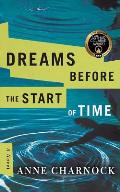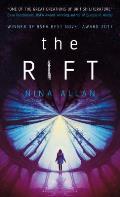Here's a collection of recent science stories that deepen our understanding of the past, both here on Earth and in the heavens.
An international team of palaeontologists, which includes the University of Bristol, has discovered that the flying reptiles, pterosaurs, actually had four kinds of feathers, and these are shared with dinosaurs -- pushing back the origin of feathers by some 70 million years. Pterosaurs are the flying reptiles that lived side by side with dinosaurs, 230 to 66 million years ago. It has long been known that pterosaurs had some sort of furry covering often called 'pycnofibres', and it was presumed that it was fundamentally different to feathers of dinosaurs and birds.
A relic cloud of gas, orphaned after the Big Bang, has been discovered in the distant universe by astronomers using the world's most powerful optical telescope, the W. M. Keck Observatory on Maunakea, Hawaii. "Everywhere we look, the gas in the universe is polluted by waste heavy elements from exploding stars," says Robert. "But this particular cloud seems pristine, unpolluted by stars even 1.5 billion years after the Big Bang."
'Treasure trove' of dinosaur footprints found in southern England
More than 85 well-preserved dinosaur footprints -- made by at least seven different species -- have been uncovered in East Sussex, representing the most diverse and detailed collection of these trace fossils from the Cretaceous Period found in the UK to date. The footprints date from the Lower Cretaceous epoch, between 145 and 100 million years ago, with prints from herbivores including Iguanodon, Ankylosaurus, a species of stegosaur, and possible examples from the sauropod group (which included Diplodocus and Brontosaurus); as well as meat-eating theropods.
Fossil from the Big Bang discovered
Rare relic is one of only three fossil clouds known in the universe
Our Earth is an aqua-planet, and is the only planet in our solar system where the presence of water on the planet surface has been confirmed. We are, however, not yet sure how our Earth acquired water. Recent studies have shown that other celestial bodies in our solar system have, or used to have, water in some form. Asteroids are considered to be one of the candidates that brought water to Earth. Note that the liquid water is not flowing on the surface of asteroids, but water is retained in asteroids as hydrated minerals, which were produced by chemical reactions of water and anhydrous rocks that occurred inside the asteroids, that is, aqueous alteration. Hydrated minerals are stable even above the sublimation temperature of water ice. Thus, by looking for hydrated minerals, we can investigate whether asteroids have water.















